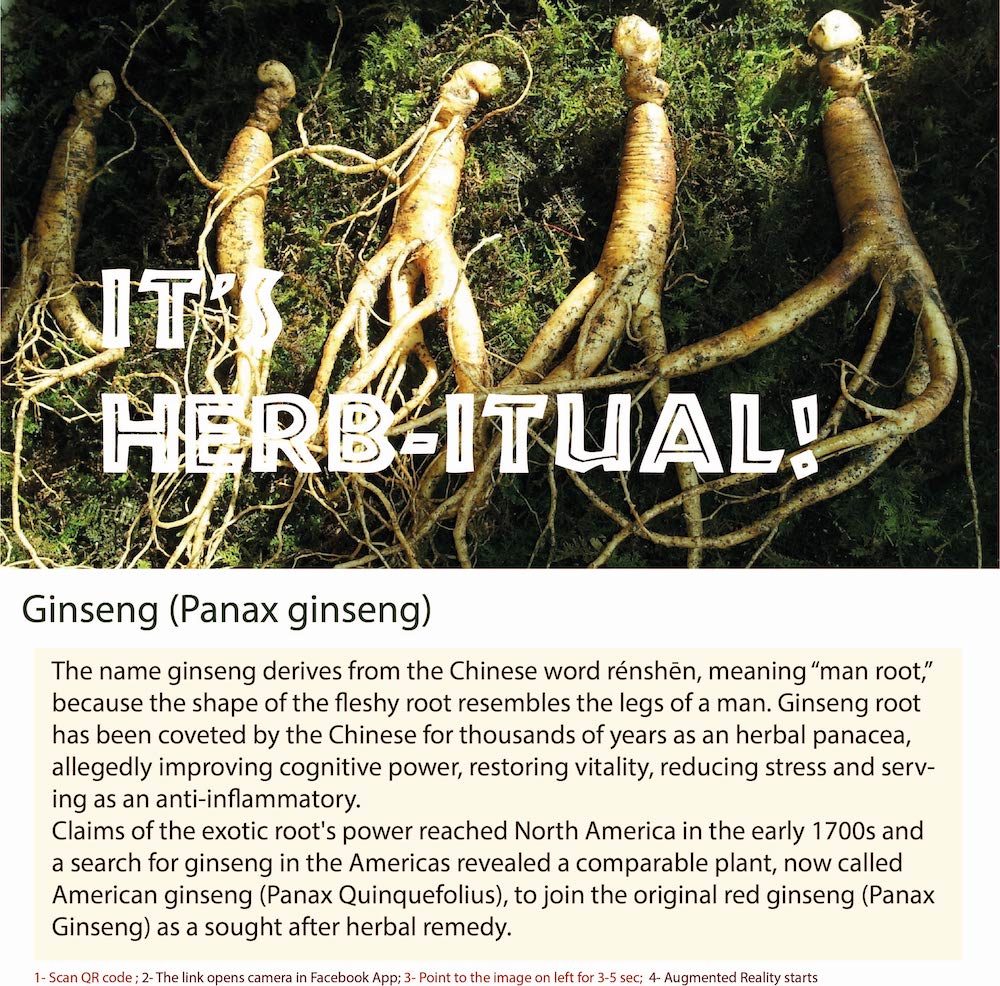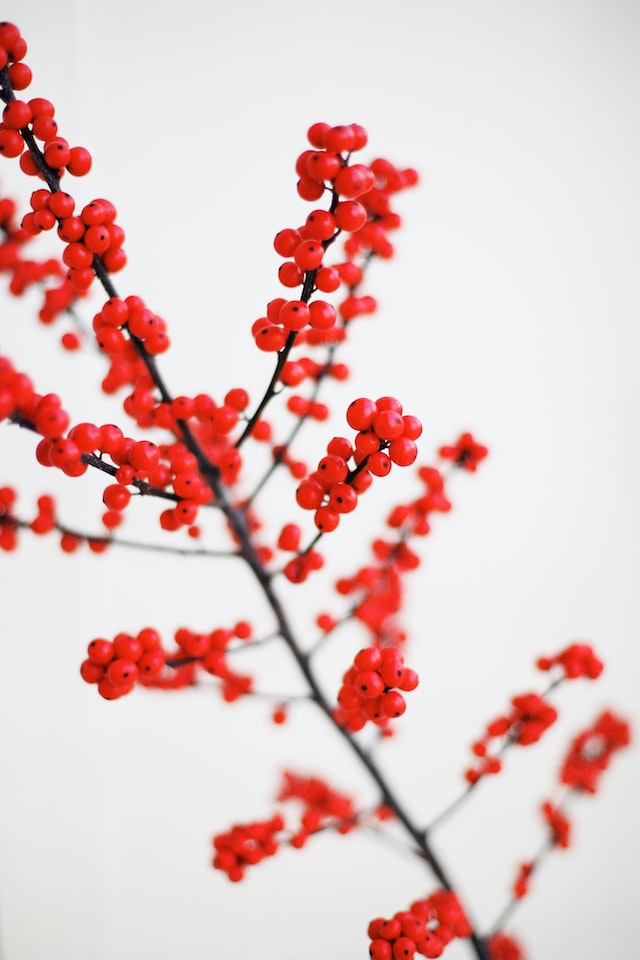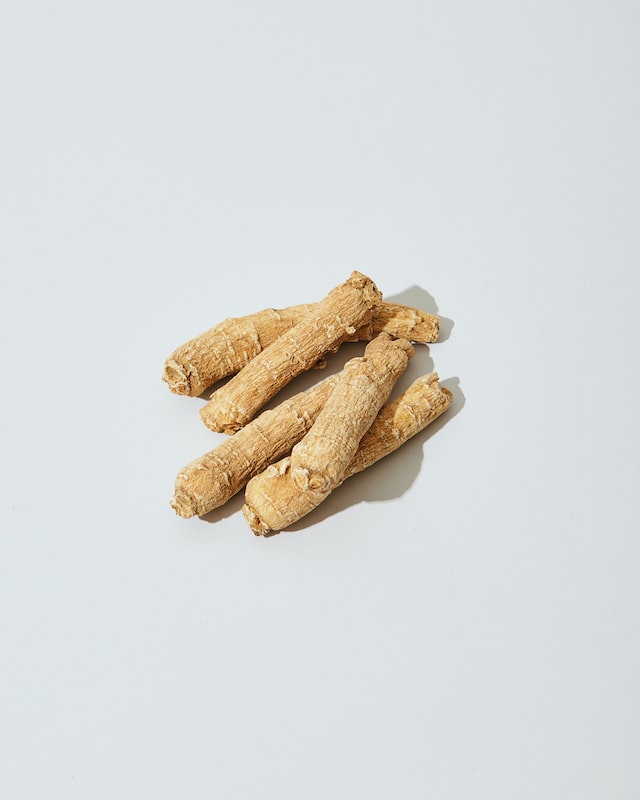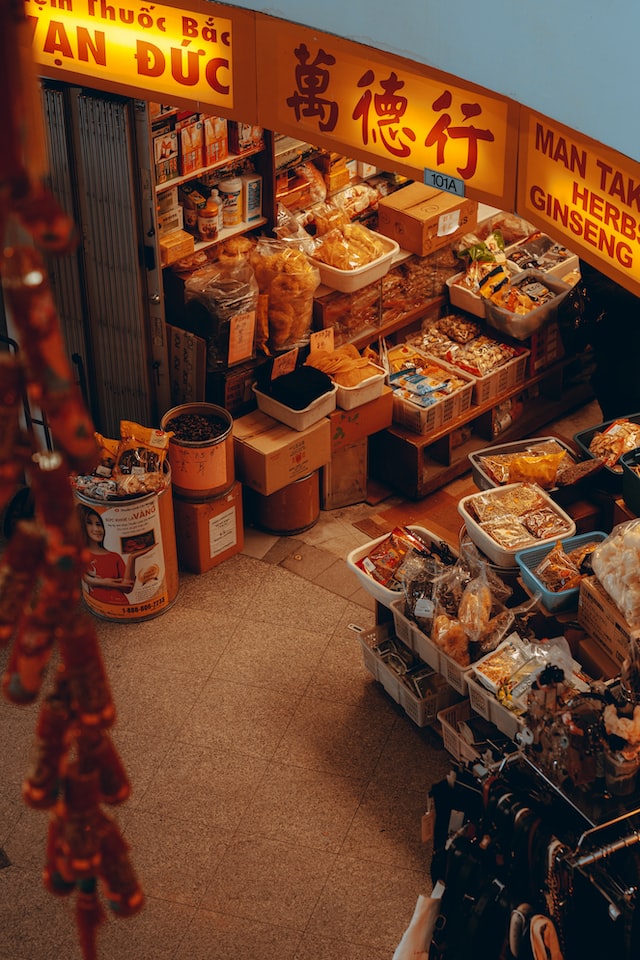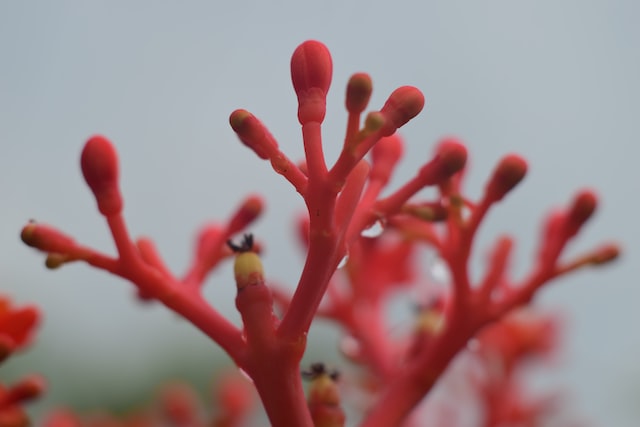Discover the Ginseng Herbal Woody Perfume Oil at Scentopia Singapore
Ginseng: The Miracle Root with a Rich History and Multifaceted Uses
Ginseng, a revered and sought-after medicinal root, has been a part of traditional medicine and cultural heritage in various parts of the world for centuries. Beyond its well-known medicinal properties, ginseng has also found its way into the realms of perfumes, fragrance, therapeutic oils, food, and even fun crazy facts. In this comprehensive article, we explore the multifaceted world of ginseng, uncovering its history, medicinal uses, culinary significance, and its unexpected roles in perfumery and fun facts that make it truly fascinating.
The Origins and History of Ginseng: A Tale of Ancient Healing
Ginseng, scientifically known as Panax ginseng, is native to Northeast Asia, including Korea, China, and Siberia. Its unique properties and potential health benefits were discovered by ancient herbalists and traditional healers in these regions. Ginseng has a long and storied history, with records of its use dating back thousands of years in traditional Chinese medicine.
Medicinal Uses of Ginseng: The Root of Vitality
In traditional medicine, ginseng is often referred to as the "root of vitality" due to its believed rejuvenating effects on the body. It is considered an adaptogen, which means it helps the body cope with stress and restore balance. Ginseng is believed to have a range of health benefits, including boosting the immune system, enhancing cognitive function, improving energy levels, and supporting overall well-being.
Ginseng in Perfumes and Fragrance: An Unexpected Scent
While ginseng is not a common ingredient in perfumery, its unique herbal and earthy aroma has inspired some niche fragrances. Perfumers may use ginseng as a subtle accent note to add an intriguing and unexpected twist to their creations.
Ginseng in Therapeutic Oils: Unleashing the Power of Aromatherapy
The essential oil derived from ginseng is not as well-known as other essential oils, but it is sometimes used in aromatherapy blends for its potential calming and revitalizing effects.
Ginseng in Culinary Delights: A Treasured Ingredient
In the culinary world, ginseng is highly prized for its unique flavor and potential health benefits. It is commonly used in traditional Asian cuisines, particularly in soups, teas, and herbal tonics. Ginseng-infused dishes are often regarded as nourishing and invigorating.
Fun Crazy Facts about Ginseng
Ginseng's remarkable journey from ancient traditional medicine to its place in modern culinary delights, perfumes, and even fun crazy facts, is a testament to its enduring appeal and significance. As a symbol of vitality and well-being, ginseng continues to captivate the world with its multifaceted uses and rich history. Whether cherished for its medicinal properties, appreciated for its unique aroma in perfumery, or savored as a treasured ingredient in culinary delights, ginseng remains a beloved and revered root with a legacy that spans centuries. As we continue to explore the wonders of this miracle root, let us embrace the magic and fascination it brings to our lives.
Ginseng, a revered and sought-after medicinal root, has been a part of traditional medicine and cultural heritage in various parts of the world for centuries. Beyond its well-known medicinal properties, ginseng has also found its way into the realms of perfumes, fragrance, therapeutic oils, food, and even fun crazy facts. In this comprehensive article, we explore the multifaceted world of ginseng, uncovering its history, medicinal uses, culinary significance, and its unexpected roles in perfumery and fun facts that make it truly fascinating.
The Origins and History of Ginseng: A Tale of Ancient Healing
Ginseng, scientifically known as Panax ginseng, is native to Northeast Asia, including Korea, China, and Siberia. Its unique properties and potential health benefits were discovered by ancient herbalists and traditional healers in these regions. Ginseng has a long and storied history, with records of its use dating back thousands of years in traditional Chinese medicine.
Medicinal Uses of Ginseng: The Root of Vitality
In traditional medicine, ginseng is often referred to as the "root of vitality" due to its believed rejuvenating effects on the body. It is considered an adaptogen, which means it helps the body cope with stress and restore balance. Ginseng is believed to have a range of health benefits, including boosting the immune system, enhancing cognitive function, improving energy levels, and supporting overall well-being.
Ginseng in Perfumes and Fragrance: An Unexpected Scent
While ginseng is not a common ingredient in perfumery, its unique herbal and earthy aroma has inspired some niche fragrances. Perfumers may use ginseng as a subtle accent note to add an intriguing and unexpected twist to their creations.
Ginseng in Therapeutic Oils: Unleashing the Power of Aromatherapy
The essential oil derived from ginseng is not as well-known as other essential oils, but it is sometimes used in aromatherapy blends for its potential calming and revitalizing effects.
Ginseng in Culinary Delights: A Treasured Ingredient
In the culinary world, ginseng is highly prized for its unique flavor and potential health benefits. It is commonly used in traditional Asian cuisines, particularly in soups, teas, and herbal tonics. Ginseng-infused dishes are often regarded as nourishing and invigorating.
Fun Crazy Facts about Ginseng
- Ginseng is often referred to as the "man-root" due to its human-like shape, with a central root resembling a human figure.
- Wild ginseng is highly valued and can fetch exorbitant prices in some markets, making it a sought-after commodity.
- The cultivation of ginseng requires patience, as it takes several years for the plant to reach maturity and develop its medicinal properties fully.
- In some cultures, ginseng is believed to have mystical and spiritual powers, and it is sometimes used in rituals and ceremonies.
Ginseng's remarkable journey from ancient traditional medicine to its place in modern culinary delights, perfumes, and even fun crazy facts, is a testament to its enduring appeal and significance. As a symbol of vitality and well-being, ginseng continues to captivate the world with its multifaceted uses and rich history. Whether cherished for its medicinal properties, appreciated for its unique aroma in perfumery, or savored as a treasured ingredient in culinary delights, ginseng remains a beloved and revered root with a legacy that spans centuries. As we continue to explore the wonders of this miracle root, let us embrace the magic and fascination it brings to our lives.
To experience augmented reality, please open the Facebook-app using QR code and point to the image below
Elevate Your Senses with Herbal Woody Perfume Oil
Ginseng is a perennial plant that belongs to the genus Panax. It is native to eastern Asia, and is grown in many parts of the world. The root of the ginseng plant is used for medicinal purposes.
The most commonly used species of ginseng is Panax ginseng, also known as Asian ginseng or Korean ginseng. American ginseng (Panax quinquefolius) and Siberian ginseng (Eleutherococcus senticosus) are also used for medicinal purposes, but they are not as well-studied as Asian ginseng.
Asian ginseng has been used in traditional medicine for centuries to help with a wide range of health conditions. It is believed to help improve energy and stamina, boost the immune system, reduce stress and anxiety, and improve mental function. It is also used as a natural remedy for conditions such as diabetes, high blood pressure, and erectile dysfunction.
American ginseng is similar to Asian ginseng in its therapeutic properties, but it is considered to be less stimulating and more calming. It is often used to help with stress, fatigue, and insomnia.
Siberian ginseng is not actually a true ginseng, but it is similar in its therapeutic properties. It is believed to help improve energy and endurance, reduce stress, and boost the immune system.
The most commonly used species of ginseng is Panax ginseng, also known as Asian ginseng or Korean ginseng. American ginseng (Panax quinquefolius) and Siberian ginseng (Eleutherococcus senticosus) are also used for medicinal purposes, but they are not as well-studied as Asian ginseng.
Asian ginseng has been used in traditional medicine for centuries to help with a wide range of health conditions. It is believed to help improve energy and stamina, boost the immune system, reduce stress and anxiety, and improve mental function. It is also used as a natural remedy for conditions such as diabetes, high blood pressure, and erectile dysfunction.
American ginseng is similar to Asian ginseng in its therapeutic properties, but it is considered to be less stimulating and more calming. It is often used to help with stress, fatigue, and insomnia.
Siberian ginseng is not actually a true ginseng, but it is similar in its therapeutic properties. It is believed to help improve energy and endurance, reduce stress, and boost the immune system.
Explore the Benefits of Ginseng-infused Perfume Oils
Ginseng, particularly Asian ginseng (Panax ginseng), is believed to have a wide range of therapeutic properties due to its active compounds, known as ginsenosides. These compounds are thought to have adaptogenic properties, which means that they help the body adapt to stress and promote overall well-being. Some of the therapeutic properties associated with ginseng include:
- Energy and stamina: Ginseng is believed to help improve energy levels and reduce fatigue. Some studies suggest that it may help improve athletic performance and reduce muscle damage caused by exercise.
- Immune system: Ginseng is believed to boost the immune system, helping to protect the body against infection and disease.
- Mental function: Some studies suggest that ginseng may help improve memory, concentration, and overall cognitive function.
- Stress and anxiety: Ginseng is thought to have a calming effect on the body and may help reduce stress and anxiety.
- Diabetes: Some studies suggest that ginseng may help improve blood sugar control in people with diabetes.
- High blood pressure: Some studies suggest that ginseng may help lower blood pressure in people with hypertension.
- Erectile dysfunction: Some studies suggest that ginseng may help improve erectile function in men with erectile dysfunction.
Crafted with Natural Ingredients: Herbal Woody Notes
Ginseng fun facts:
Here are a few fun facts about ginseng:
Here are a few fun facts about ginseng:
- The name "ginseng" comes from the Chinese word "renshen," which means "man root" because the shape of the root is said to resemble a human.
- Ginseng is considered a "panacea" in traditional Chinese medicine and is believed to have a wide range of health benefits.
- Ginseng is one of the most expensive herbs in the world, with prices for high-quality ginseng roots reaching up to $1,000 per pound.
- Wild ginseng is considered more valuable than cultivated ginseng because it is believed to have greater medicinal properties.
- Ginseng is a slow-growing plant, and it can take up to 6 years for the roots to mature enough to be harvested.
- Ginseng is a part of traditional Korean culture, and it is considered good luck to give ginseng as a gift.
- American ginseng is considered an endangered species in the United States, and it is illegal to collect wild ginseng without a permit.
- The ginseng root is traditionally used to help with a wide range of health conditions, including fatigue, stress, and diabetes.
- Ginseng is believed to have adaptogenic properties, meaning that it helps the body adapt to stress and promote overall well-being.
- The ginseng root is also used in some traditional beauty products, such as skin creams and hair tonics, because it is believed to have anti-aging properties.
Long-lasting Fragrance Oils: Ginseng Woody Blend
The scent of ginseng root varies depending on the species, the age of the root, and the processing method used.
Fresh ginseng root has a slightly sweet, earthy smell. The smell of dried ginseng root is more pungent, with a woody and earthy aroma. Some people describe the scent as "medicinal" or "herbaceous." The smell of steamed and dried ginseng, also known as "red ginseng" is more intense and has a stronger, earthy aroma.
Ginseng is rarely used as an ingredient in perfumes or scented products because it does not have a strong or pleasant scent. Instead, it is primarily used for its medicinal properties and is consumed in the form of capsules, tea, or extract form.
It's worth noting that essential oils can be extracted from the root, but they are not commonly used in perfumery because of the strong and earthy scent.
Fresh ginseng root has a slightly sweet, earthy smell. The smell of dried ginseng root is more pungent, with a woody and earthy aroma. Some people describe the scent as "medicinal" or "herbaceous." The smell of steamed and dried ginseng, also known as "red ginseng" is more intense and has a stronger, earthy aroma.
Ginseng is rarely used as an ingredient in perfumes or scented products because it does not have a strong or pleasant scent. Instead, it is primarily used for its medicinal properties and is consumed in the form of capsules, tea, or extract form.
It's worth noting that essential oils can be extracted from the root, but they are not commonly used in perfumery because of the strong and earthy scent.
Why Choose Scentopia Singapore Perfume Oils
Some perfumes and colognes with the scent of ginseng may be found in the market, but they are not as common as other botanical ingredients. They are often marketed as unisex perfumes and colognes, and are usually blended with other woodsy and earthy scents to balance the strong smell of ginseng.
It's worth noting that essential oils can be extracted from the root, but they are not commonly used in perfumery because of the strong and earthy scent. If a perfume or cologne claims to have ginseng scent, it's likely that it contains synthetic compounds or other ingredients that are meant to mimic the smell of ginseng.
Also, it's important to note that some perfumes or colognes may contain ginseng extract or oil as an ingredient, but it's not the main scent of the fragrance.
It's worth noting that essential oils can be extracted from the root, but they are not commonly used in perfumery because of the strong and earthy scent. If a perfume or cologne claims to have ginseng scent, it's likely that it contains synthetic compounds or other ingredients that are meant to mimic the smell of ginseng.
Also, it's important to note that some perfumes or colognes may contain ginseng extract or oil as an ingredient, but it's not the main scent of the fragrance.
Join Scentopia, Sentosa's latest tourist attraction wonderful orchid scent crafting, fragrance tour, bridal shower or corporate team building which includes perfume making onsite and offsite, beach activities and more. We also serve primary school learning journey, secondary students and pupil on industrial excursions. Know more about our orchids perfume bar or therapeutic orchid scents and other wellness aromas. Conatct Perfume workshop or book a scent crafting session here.

